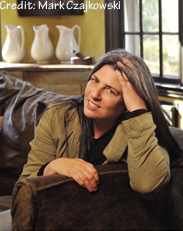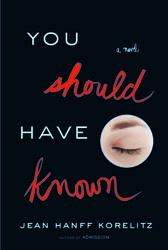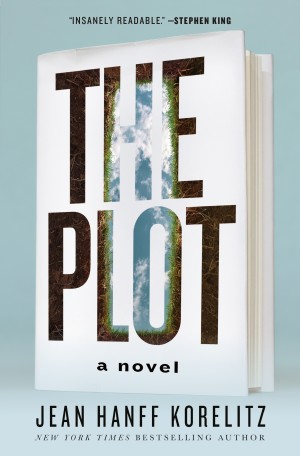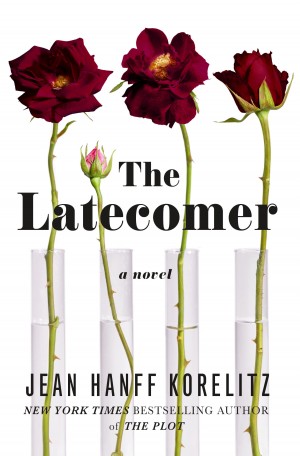 You Should Have Known (available today from Grand Central Publishing) as well as four previous novels, a poetry collection, a novel for children, and numerous essays blogs for The Postscript on coming up with a title for her new book.
You Should Have Known (available today from Grand Central Publishing) as well as four previous novels, a poetry collection, a novel for children, and numerous essays blogs for The Postscript on coming up with a title for her new book.  The difficulty was that the novel’s title had to serve two functions; it had to do the normal job of representing my book’s ideas and themes, but it also had to serve as the title of a book within the book: my protagonist Grace’s non-fiction book about relationships. Grace, a therapist, has grown weary of hearing women in her practice reveal that their earliest impressions of their spouses were accurate predictors of marital discord ahead. How can we see something clearly when we’ve just met someone, and then gradually see it less and less clearly as time passes and we get to know the person “better”? “You Already Know” was the title I came up with. It was perfect for the book-within-a-book. It had an “in your face” quality that I could picture on a cover in the Self Help aisle. But when I told people my novel in progress was called “You Already Know”, they said, “No, I don’t know. That’s why I asked you.”
The difficulty was that the novel’s title had to serve two functions; it had to do the normal job of representing my book’s ideas and themes, but it also had to serve as the title of a book within the book: my protagonist Grace’s non-fiction book about relationships. Grace, a therapist, has grown weary of hearing women in her practice reveal that their earliest impressions of their spouses were accurate predictors of marital discord ahead. How can we see something clearly when we’ve just met someone, and then gradually see it less and less clearly as time passes and we get to know the person “better”? “You Already Know” was the title I came up with. It was perfect for the book-within-a-book. It had an “in your face” quality that I could picture on a cover in the Self Help aisle. But when I told people my novel in progress was called “You Already Know”, they said, “No, I don’t know. That’s why I asked you.”

So maybe “You Already Know” wasn’t going to work.
I started to think about that question that always popped into my head when some politician was caught in an extramarital affair, or a financier was revealed to be running a vast scam. Sure, the guy was obviously guilty, but what about his lovely, intelligent wife who stood beside him at the press conference or in the courtroom — Did she know? How could she not have known?How could she not have known?
That became my novel’s title, and it stayed that way for the longest time. Then I decided to tinker with the pronoun (pronoun problems – again!) and it became: “How Could You Not Have Known?” I liked that question mark — it reminded me of a title by Trollope, like “Can You Forgive Her?” or “He Knew He Was Right”. I was really tired of thinking about titles, and my best friend, who loves Trollope, really liked “How Could You Not Have Known?”
But my editor, alas, did not. And the sales force at my publisher, alas, also did not. No one but my best friend, it turned out, liked “How Could You Not Have Known?” It was time to throw it out, along with all of the other past titles, and find something we could all get behind. The problem was that I was officially out of ideas at that point, and a few days of concentration on the title problem did nothing but get me tied up in knots rehashing the titles I’d already considered and thrown away. Finally I took the coward’s way out. I asked my friends. I sent out an email to about twenty people, most of them writers, all of them readers. I told them what the book was about (a couples therapist, about to publish a book about marriage, who has ignored her own advice, with disastrous results). Then I wrote:Time runneth out to find a title for my new novel that everyone can love — and that “everyone” includes me. How many have we run through? YOU ALWAYS KNOW, YOU ALREADY KNOW, HOW COULD YOU NOT HAVE KNOWN? and finally the current title: HOW COULD SHE NOT HAVE KNOWN?
In a last ditch attempt to get fresh eyes on this, and in case there really is a brilliant, genius title I just can’t see, I appeal to you: super smart people I know who are really good at stuff like this.
Anyone?
Anything?
About half of them sent back the same suggestion: YOU SHOULD HAVE KNOWN
It was so simple. I can’t say that it had been staring me in the face the whole time, because it hadn’t been. But now it was. It was the right title. It was the only title. You Should Have Known. And now I knew.
Jean Hanff Korelitz is The New York Times bestselling author of the novels The Plot, The Latecomer, You Should Have Known, Admission, The Devil and Webster, The White Rose, The Sabbathday River and A Jury of Her Peers, as well as Interference Powder, a novel for children. Her company BOOKTHEWRITER hosts Pop-Up Book Groups in which small groups of readers discuss new books with their authors. She lives in New York City with her husband, Irish poet Paul Muldoon.



